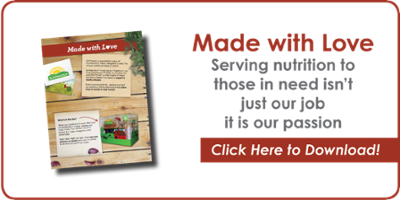 With each birthday, we may wonder how we are perceived by those younger than us. While ageism affects people of all ages, it is no doubt that it is most prevalent in older adults. From healthcare settings to the workplace, discrimination based on age is happening in many areas of life and is at an all-time high. And as it works its way into mental health care, many researchers believe more serious conditions are going untreated by health professionals who are continually dismissing older patients, and, as a result, important signs.
With each birthday, we may wonder how we are perceived by those younger than us. While ageism affects people of all ages, it is no doubt that it is most prevalent in older adults. From healthcare settings to the workplace, discrimination based on age is happening in many areas of life and is at an all-time high. And as it works its way into mental health care, many researchers believe more serious conditions are going untreated by health professionals who are continually dismissing older patients, and, as a result, important signs.
Fortunately, though, a new conversation has started and it’s attracting the attention of opinion leaders, and even celebrities, who are advocating for a better public understanding of aging and the problem with ageism. But it doesn’t end there. Leading national organizations on aging are joining forces to develop initiatives and movements that aim to reframe the way people think and act.
How can you help in this reframing process? These steps are a great place to start.
Change the Conversation
By changing the way we communicate to - and about - older adults, we can change the misconceptions that create obstacles for seniors. It’s called framing, which is the simple process of knowing what to emphasize and what to leave unsaid, and it’s one component of the Reframing Aging Project developed by FrameWorks, AARP and a handful of other leaders of aging organizations. Together, they represent (and have access to) millions of older adults and now, are offering free communication toolkits like this one that can help individuals and their organizations to help combat ageism for good.
Engage
While making small changes to our communication can make a big impact, actions can still speak louder than words. As boomers are aging, they are demanding different and better ways of doing so – which is something we can all get behind. And it’s why so many individuals and organizations are incorporating creative aging agendas. From culturally enriched programming and workshops to community initiatives that are proudly designating themselves as “age-friendly” through the World Health Organization (WHO), professional practices everywhere are finding more innovative ways to appeal to older adults. It is through these efforts that they are able to meet their demands in a way that encourages, respects and celebrates them. And you can, too.
Speak Up
Moving ageism into the public agenda is critical as a society, but it starts with awareness we can only gain by speaking up. From changes in attitude to negative comments, ageism is all too common and can take on many forms – but accepting this continues to put seniors at an increased risk of disability, depression, and social isolation. So don’t be afraid to speak out. By doing so, we can continue to provide a platform designed to change attitudes towards aging and take the critical stance needed to make a positive - and lasting - influence.
Sparking social change of any kind requires coordinated and sustained action from so many individuals and organizations across every industry. But with the right amount of outreach, we can continue to reframe the conversation and actions around this important issue and what it will take to live in a world inclusive of all ages.











